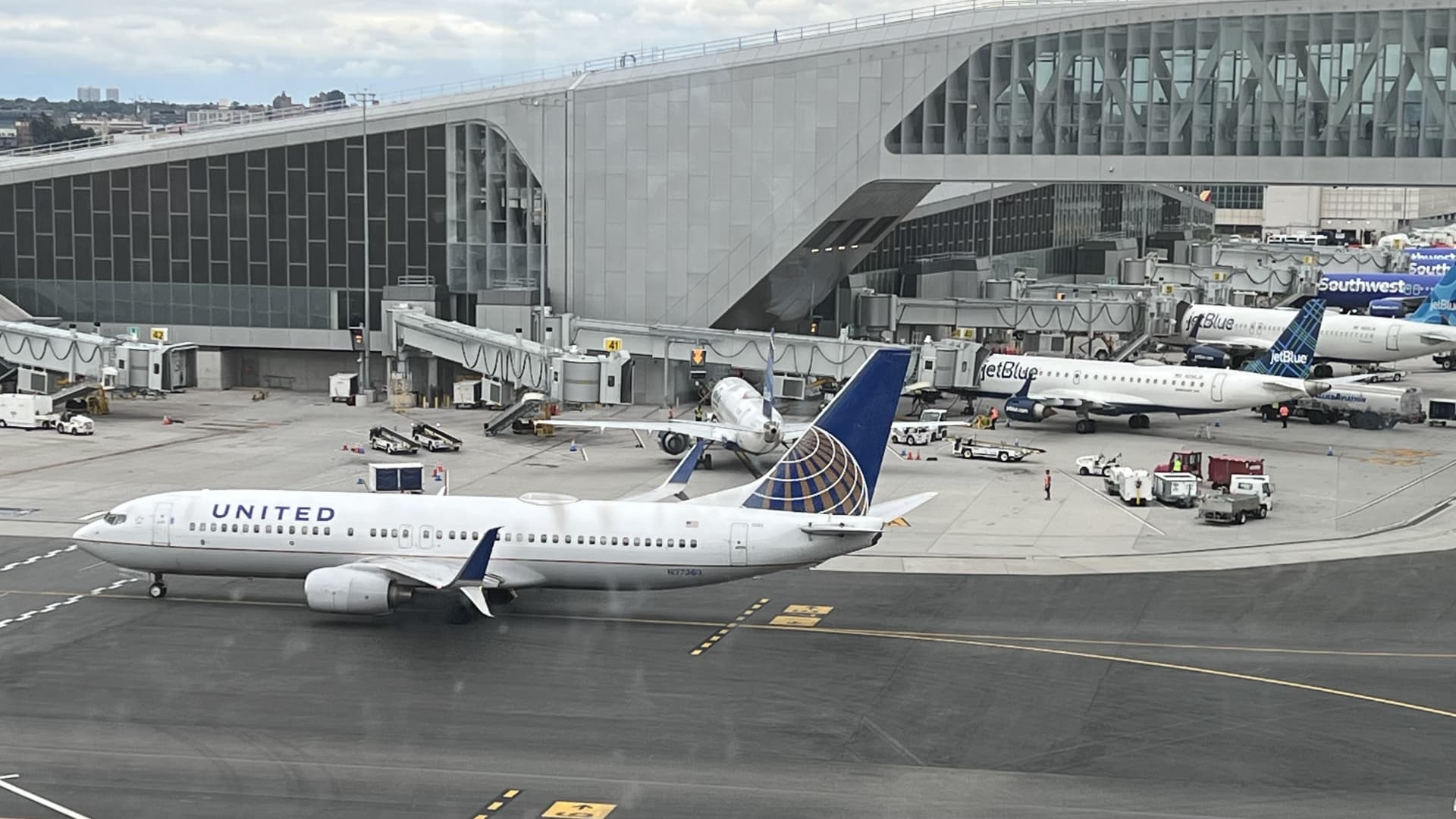An United Airlines seen at LaGuardia International Airport in New York.
Adam Jeffery | CNBC
The Federal Aviation Administration on Wednesday announced measures to try to avoid a repeat of disruptions at airports serving New York City and Washington D.C. this summer as it grapples with a shortage of air traffic controllers at a key facility in the area.
The agency said it will reduce flight requirements for airlines’ take off and landing rights to avoid congestion. Airlines have until April 30 to file requests to give up take-off and landing slots.
The waiver would last from May 15 through Sept. 15.
Airline executives have repeatedly complained about air traffic control shortfalls contributing to flight disruptions as air travel sprang back from pandemic lows in the past few years. Airlines last summer also reduced their schedules to avoid delays as they dealt with their own staffing issues and other strains.
The FAA said it expects increased delays in the New York City area this summer compared with last year, projecting a 45% rise in delays with operations growing 7%.
United Airlines said it would seek a waiver for certain use of take-off and landing allotments at the three biggest New York-area airports and Ronald Reagan Washington National Airport. In a letter to the FAA’s acting Administrator Billy Nolen on Wednesday, United said it would use aircraft with more seats to make up for reduced numbers of flights and offer alternative flights to affected customers.
Delta Air Lines applauded the FAA’s measure.
“Delta is reviewing our network to ensure the best customer experience throughout the summer travel season and we are committed to working with the FAA on measures to ensure the safety and efficiency of operations at the NY/NJ Airports,” the carrier said in a statement.
Later this month, the FAA will hold a summit with airlines about other ways it can ease disruptions in the area. It held a similar event last year at Florida as airline passengers faced delays stemming from bad weather, high demand and congestion from issues like space launches and military exercises.

